CNN
—
Former President Donald Trump is set to visit South Carolina on Saturday, wrapping up a week that has been defined by his historic third indictment.
Trump’s Saturday trip to the early-primary state – he’ll visit Columbia, South Carolina, for the state GOP’s Silver Elephant Dinner – follows a Friday night stop in Alabama. The two were his first campaign events after his arraignment Thursday in Washington,DC, in special prosecutor Jack Smith’s investigation into his efforts to remain in the White House despite losing the 2020 election to President Joe Biden.
In Montgomery on Friday night, Trump conflated his actions in seeking to overturn the 2020 election with those of Democrats, including Hillary Clinton in 2016 and Stacey Abrams after the 2018 Georgia gubernatorial election, in the wake of their losses. He said he faces “bogus charges.”
He also said if he is elected in 2024, he would appoint a special prosecutor to investigate Biden’s family.
“When they indicted their political opponent and they did that, I said, well, now the gloves are off,” Trump said of Biden. “The Republicans better get tough, and they better get smart, because most of them look like a bunch of weak jerks right now. … You have to fight fire with fire. You can’t allow this to go on.”
Trump’s campaign on Friday went on the attack against the prosecutors who have brought cases against or are investigating the former president. It released a video attacking those prosecutors one day after Trump was arrested and arraigned for a third time.
The video attacks Smith, New York Attorney General Letitia James, Manhattan District Attorney Alvin Bragg and Fulton County, Georgia, District Attorney Fani Willis, dubbing the group the “Fraud Squad.”
“Meet the cast of unscrupulous accomplices he’s assembled to get Trump,” the narrator says in the video of Biden.
The video also uses footage of Biden falling off his bike and tripping up the stairs to Air Force One.
Lashing out over the costs of defending himself and his allies in myriad legal battles, Trump also called for the Supreme Court to “intercede.”
“CRAZY! My political opponent has hit me with a barrage of weak lawsuits, including D.A., A.G., and others, which require massive amounts of my time & money to adjudicate,” Trump complained on Truth Social. “Resources that would have gone into Ads and Rallies, will now have to be spent fighting these Radical Left Thugs in numerous courts throughout the Country. I am leading in all Polls, including against Crooked Joe, but this is not a level playing field. It is Election Interference, & the Supreme Court must intercede.”
His campaign has used the legal proceedings as a fundraising tool, hauling in small-dollar donations.
“Trump is in THE AIR!” his campaign said in an email to supporters Thursday. “Before he arrives at the courthouse for his hearing, can 10,000 pro-Trump patriots sign on to defend him & end the witch hunt?”
A handful of GOP presidential candidates, including former New Jersey Gov. Chris Christie, former Texas Rep. Will Hurd and former Arkansas Gov. Asa Hutchinson, have criticized Trump’s actions.
Hurd, on Fox News on Thursday, said that Trump’s court appearance was the “third time in four months in courts. It’s unacceptable, we didn’t have to be here.”
Former Vice President Mike Pence’s campaign is selling T-shirts and hats branded with the phrase “Too Honest,” referencing a phrase Trump allegedly uttered to Pence when he refused to go along with the then-president’s request to reject electoral votes and change the outcome of the 2020 election.
According to the federal indictment, in one conversation on January 1, 2021, Trump told Pence he was “too honest” when the then-vice president said that he lacked the authority to change the results.
After Trump was indicted earlier this week, Pence said that “anyone who puts themselves over the Constitution should never be president” and added that Trump “was surrounded by a group of crackpot lawyers who kept telling him what his itching ears wanted to hear.”
However, much of the Republican field has so far refused to take aim at Trump over his efforts to overturn the 2020 election, which are at the heart of the federal charges he faces in Washington.
Trump’s top-polling rival, Florida Gov. Ron DeSantis, on Friday said he would pardon Trump if he is elected in 2024. He also defended the former president, arguing that the laws federal prosecutors say Trump broke were “never intended to apply to this type of situation.”
The Florida governor, who was campaigning in Iowa, told reporters his candidacy for president would be focused on the future and starting to heal “divisions in this country.”
DeSantis indicated that he would pardon Trump if he were convicted, echoing comments he recently made on “Outkick” with Clay Travis.
“I’ve said for many weeks now, I don’t think it’s in the best interest of the country to have a former president – that’s almost 80 years old – go to prison. Just like Nixon or Ford pardoned Nixon, you know, sometimes you got to put this stuff behind you,” he said.
DeSantis’ comments underscored the reality that most of Trump’s 2024 GOP rivals see little to gain by angering a base that is still largely supportive of the former president.
South Carolina Sen. Tim Scott on Friday criticized the Justice Department for the “weaponization of their power” in his first on-camera reaction to the third indictment and arraignment of Trump.
Scott told reporters following an immigration roundtable event in Yuma, Arizona, he believes DOJ spends “a lot of time hunting Republicans” while protecting Democrats, specifically referencing the president’s son Hunter Biden.
“My perspective is that the DOJ continues to weaponize their power against political opponents. It seems like they spend a lot of time protecting Hunter Biden and Democrats and a lot of time hunting Republicans,” Scott said.
The most recent polls show that Trump remains the clear front-runner in the 2024 GOP primary. A poll of likely Republican caucusgoers in Iowa from The New York Times/Siena College released Friday showed Trump with 44% support, compared to DeSantis’ 20% and Scott’s 9%, with no other candidate topping 5%.
His lead is even wider nationally. Trump holds the support of 54% of likely GOP primary voters, a New York Times/Siena College poll released earlier this week found, while DeSantis has 17% support and no other candidate exceeds 3%.
Just 17% of likely Republican primary voters think that Trump has “committed any serious federal crimes,” and only 10% more say that although they don’t think he committed a serious crime, he “did something wrong in his handling of classified documents.” Three-quarters (75%) say that after the 2020 elections, Trump “was just exercising his right to contest the election,” while only 19% believe he “went so far that he threatened American democracy.” And 71% say that regarding the investigations Trump is facing, Republicans “need to stand behind Trump.”
The Republican base could be at odds with the broader electorate: Two-thirds of Americans (65%) say that the charges Trump faces over efforts to overturn the 2020 elections are serious, according to a new poll from ABC News and Ipsos conducted after Trump’s latest indictment.
There are broad partisan gaps in views of the seriousness of the new charges, with 91% of Democrats calling them serious along with 67% of independents, though just 38% of Republicans agree. The gap between Democrats and Republicans widens to 65 points when looking at those who call the charges “very serious” (84% of Democrats feel that way vs. 19% of Republicans; 53% of independents say the same).
While many of Trump’s rivals are carefully avoiding direct confrontation with the former president, Trump is taking direct aim at DeSantis.
Top Trump advisers Susie Wiles and Chris LaCivita sent an open memo on Thursday attacking DeSantis’ efforts to reboot his campaign.
“DeSantis’s campaign is marred by idiocy,” the memo reads, as it touts Trump’s lead in polls over his GOP rivals.
The memo compared DeSantis’ campaign to Sen. John McCain’s 2008 bid and argued both campaigns overspent and didn’t fundraise enough. The late McCain and Trump had a bitter feud for years.
“John McCain did not spend the opening week of his reboot explaining why his staff produced a video with Nazi imagery, and defending his comments that slavery provided ‘some benefit’ to enslaved Americans – while attacking black Republicans publicly in the process,” the memo reads, referencing several recent missteps DeSantis and his campaign have made.
Developments on Capitol Hill also underscored that most of the GOP has not abandoned Trump.
North Carolina Sen. Thom Tillis, a member of Senate Minority Leader Mitch McConnell’s Republican leadership team, on Thursday called on Congress to scrutinize the federal investigation into Trump’s actions.
Tillis said in a statement that the new indictment carries “a heavy burden” to show that “criminal conduct actually occurred.”

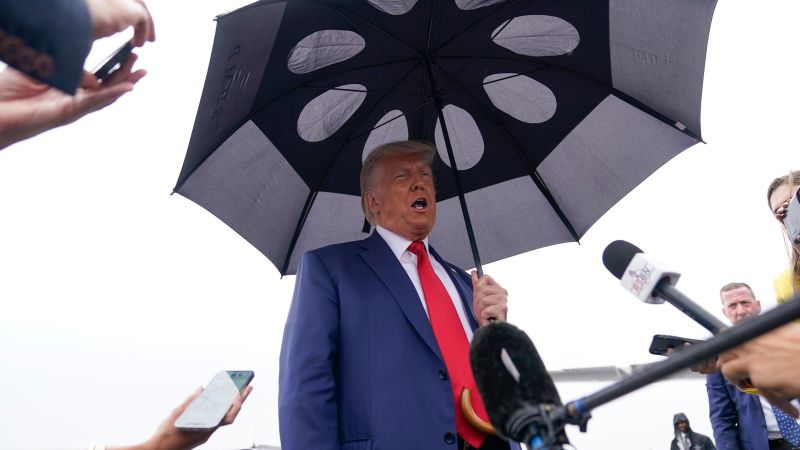
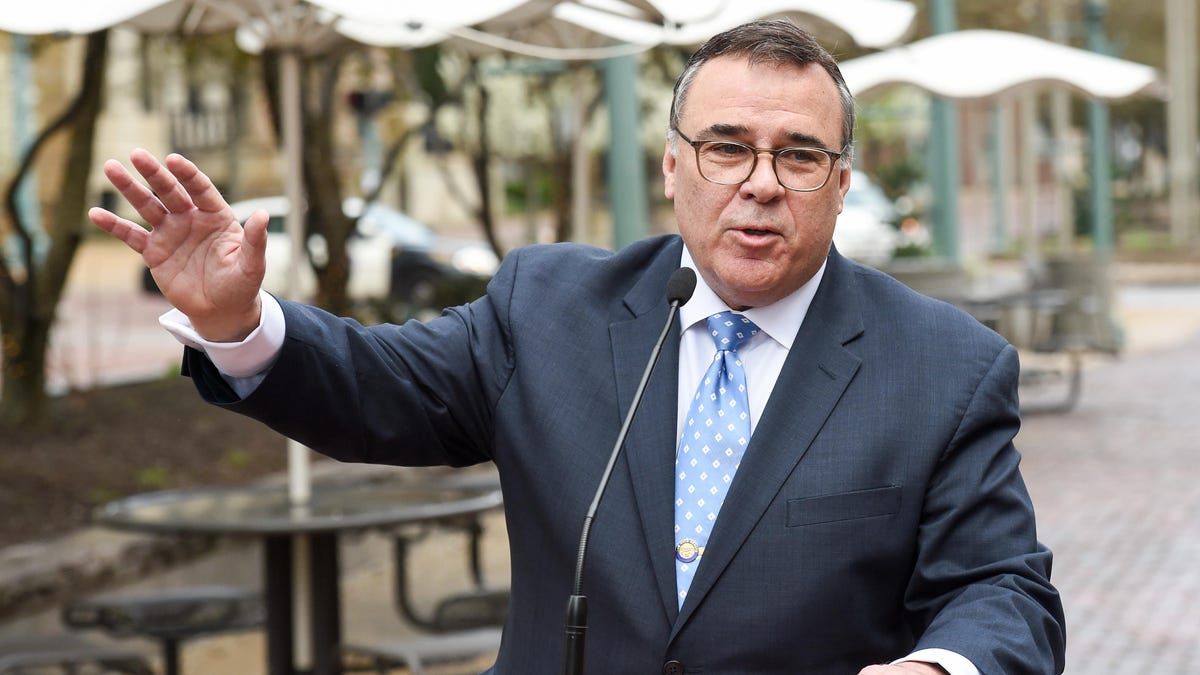




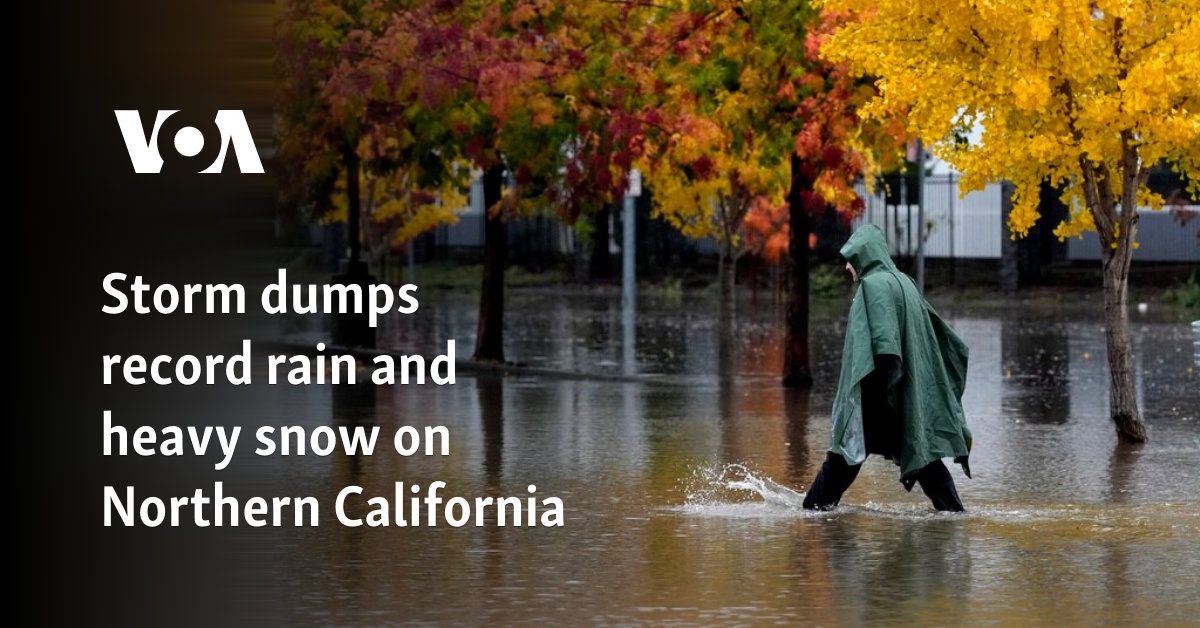







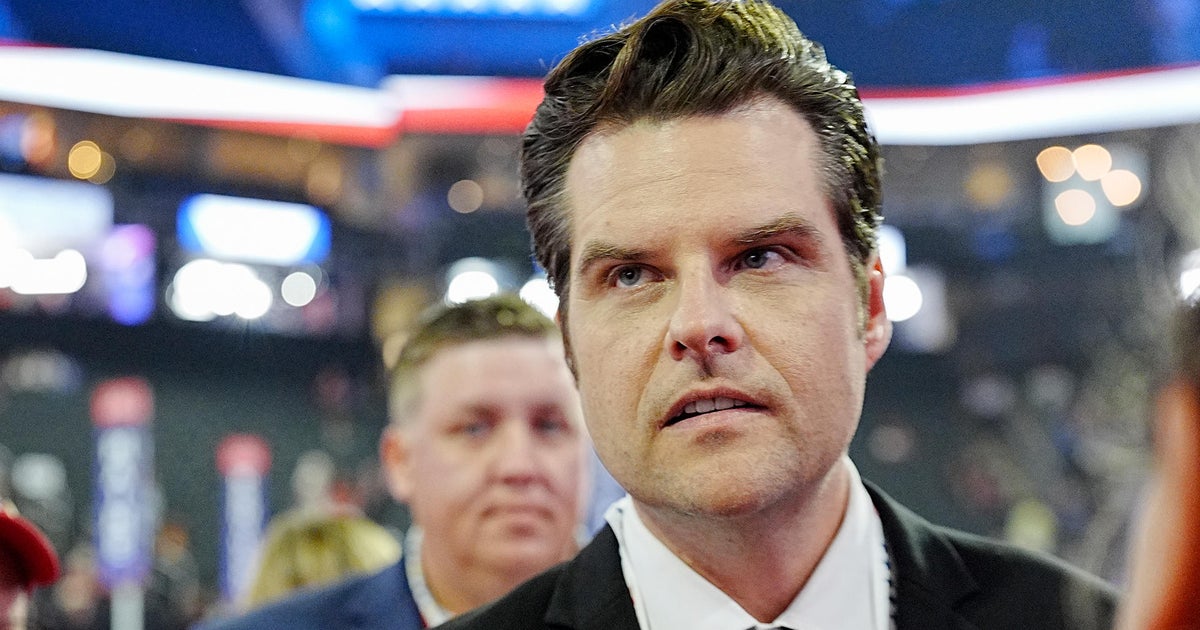









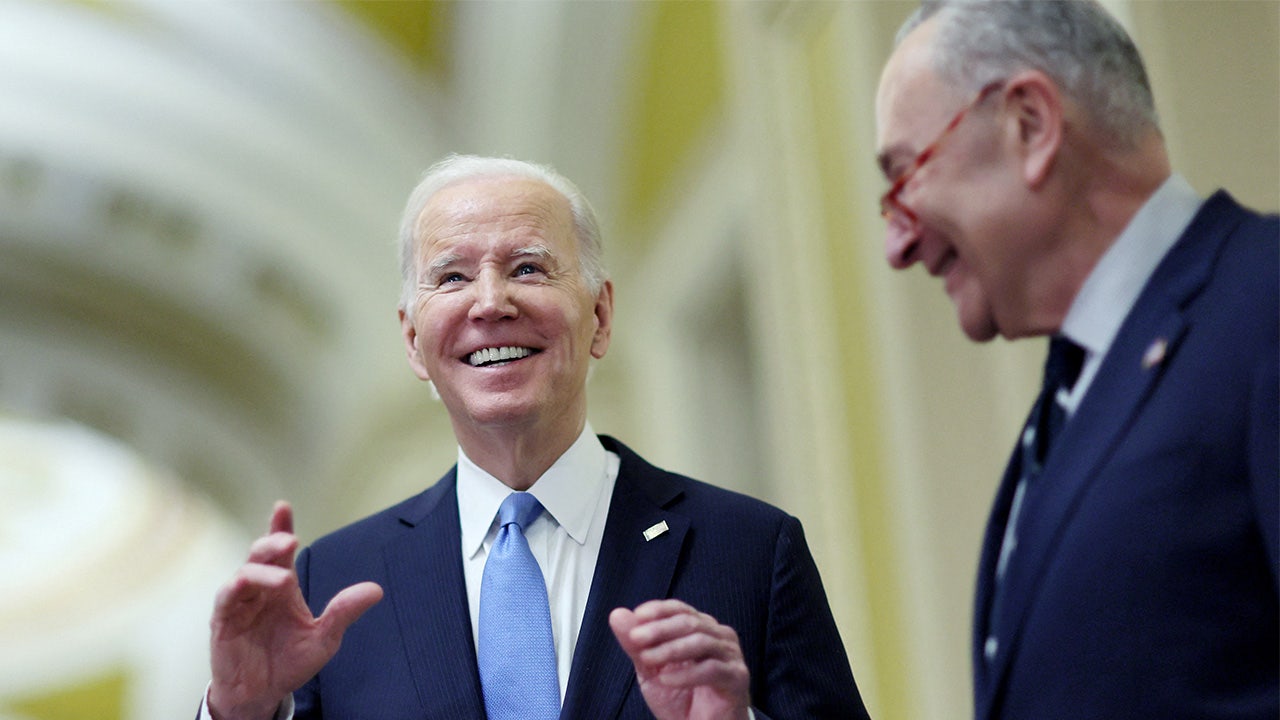







/cdn.vox-cdn.com/uploads/chorus_asset/file/25739950/247386_Elon_Musk_Open_AI_CVirginia.jpg)
